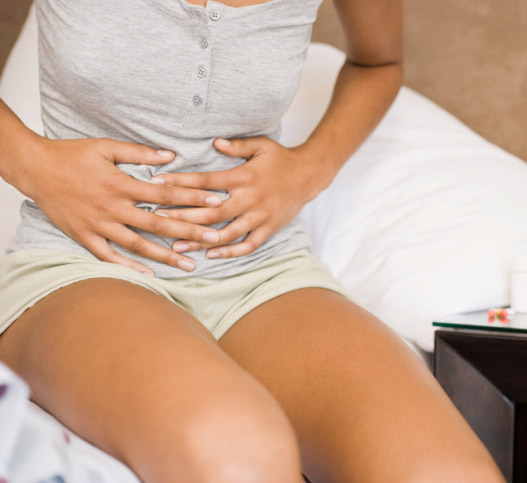6 Real Food Tips for Overcoming Constipation


Trading diarrhea for constipation?
This was NOT what I signed up for when I started SCD.
10 months into SCD, I had suddenly flipped from gassy loose stools to gut squeezing, belly protruding constipation. I was going sometimes up to 5 or 6 days without a movement. And it was consuming all of my attention after a few days of not going. This was a new kind of pain. Diarrhea pain I could handle; it was familiar, but this was a totally new sensation.
And I hated it.
Sure, I tried prunes – no luck. I couldn’t get any answers from the old school SCD world…
So I walked away.
I went for a walkabout, willing to try anything. Not judging, just experimenting, hiring experts and in the end found out several root causes that were driving my problems and lots of quick ways to get rid of constipation while I worked on the root causes.
First Things First, Are You Actually Constipated?
I honestly didn’t understand it, till I went 6 days without pooping. I thought rabbit pellets were bad… but that pain is nothing like what it can escalate to.
The word constipation is a lot like the word healthy. It seems everyone has their own definition of it largely based on preferences. I think it’s important for everyone to critically assign a definition to both of these words. And so to begin I’ll give you mine for constipated.
To define constipated let’s start with the ideal bowel habits which are characterized by having 1-3 painless bowel movements per day that come in at a 4 to 5 on the Bristol Stool Chart. So, from this definition you can see we have 2 important stool indicators, frequency and quality.
Having issues with either is a problem. Regarding frequency you should be going at least once per day. If you are going every other day, this is on the slow side. But going every other day is great compared to going every third day (or once a week), so there’s a sliding scale to be aware of.
When you do have a bowel movement in the 1-3 range on the Bristol Stool Chart these are on the slow, sluggish or constipated side. Let’s say you are going daily but it’s a 1 (rabbit pellets), some might say you are constipated. I would say your motility is a bit slow. This is something to improve but not total constipation.
In other words, there are varying degrees of constipation, from mild to moderate to severe and the factors that create these levels are the frequency and quality of your movements.
So, if you are having non-ideal frequency or quality, the following types of food can and will improve your health and bowel movements.
Can Food Completely Relieve Constipation?
This is a very common question with an unpopular but true answer of sometimes. As with most things in health, each individual is different. Each person has a different health history, lives in a different area, has a different gut flora, and leads a different lifestyle. There are way too many variables to ever get a universal solution, which is why pharmaceuticals never work for all and why we’ve been saying for years SCD must be tweaked to create a custom diet.
For many people, switching to SCD is all that is needed to get rid of their constipation. For others, SCD alone isn’t enough which is when it’s time to try the ideas presented below, but there will be plenty including myself who need even more help from custom supplements and advanced testing to fully correct and reverse constipation.
But the foundation of health and good digestion will always be food so start there.
6 Diet Changes You Can Make to Improve Constipation
The first diet change is to remove any foods that might be contributing to the problem. The biggest offenders include wheat, dairy and other grains. So, after you switch to SCD or Paleo take your diet to the next level with these changes.
1. Add More Fat
This is the most common error we see with those eating a grain-free diet. After fighting tooth and nail against giving up wheat they realign their fight towards fat. I think this a great example of how we’ve all been marketed into a diet by the food producers.
I first picked up on this from Jamie, a highly trained nutritional consultant from New Zealand. I was fighting with constipation and looking for answers. His article above gave me a breakthrough.
It turns out fat is not only needed for our hormones, cell walls but also for good digestive motility. Jaime pointed me to this study, which shows an increase in motility by ingesting a higher fat diet compared to controls. The mechanism for the increase in motility will likely never be completely proven due to the number of variables involved in health.
But there are at least two possible reasons, we know of at this time, that could increase motility due to a higher fat diet. The first could be because some of the fat might pass through to the colon increasing the speed of bowel evacuation. The second, as Paul points out, might be due to bile acid release.
In my experience, fat content plays a large role in my bowels and now that I’ve worked with plenty of constipated clients I know this diet trick almost universally helps with constipation. Some ways to add more fat to your diet are to eat fattier cuts of meat like bacon, add spoonfuls of healthy oils like coconut oil to your meals, or eat an avocado daily. Try adding more fats for at least a week before moving onto another suggestion below.
2. Consume Fermentable Foods
When I started this journey I read about how 50-80% of your stool is made up of bacteria. And I thought well all I need is to eat a bunch of bacteria then. Nope. It’s never that easy.
It turns out that eating fermentable substrates might be more important for proper stools than eating probiotics. You might be more familiar with the term prebiotics.
It appears the best way to encourage changes in flora are likely from the inside out. Just as we encourage proper small intestine bacterial growth through foods, we can encourage proper colon bacterial growth with foods that contain fermentable substrates.
Some of these fermentable substrates are: polyols, oligosaccharides, pectin, beta-glucan and other non-absorbed carbohydrates and protein that make it to the colon.
Paradoxically many of the fermentable substrates listed above that encourage healthy colon flora are those indentified as bad in the FODMAPs diet. So, from one viewpoint these foods can cause diarrhea and bowel issues but in another they might actually encourage proper bowel health. There will be more on this to come in the future, but for now remember no hormone is ever good or evil and the same is true for real foods.
If you have constipation issues, start eating more of these foods on a weekly basis: onions, garlic, mushrooms, berries, broccoli, carrots, cauliflower, brussel sprouts, pears, apples.
3. Eat More Carbohydrates
Carbohydrate isn’t the devilish demon some people like to make it out to be. Each person is an individual, so just as a diabetic and a person with SIBO will want to limit carbohydrate a person who is training for an ironman or constipation might need to increase it. The point is each person is living a certain lifestyle and has certain health conditions. And depending on those variables dietary carbohydrate should be custom fit to their needs.
When it comes to constipation there are a few reasons why adequate carbohydrate consumption could be very important to improving your stools and health:
- Some carbohydrate make their way to the colon for fermentation by microflora
- Too low carbohydrate for too long downregulates thyroid hormones slowing motility
- Health problems typically tax the adrenals and requiring the body to make most of its glucose on a weekly basis from gluconeogenesis could further dysregulate hormones
So, the question is what is adequate carbohydrate consumption? Volumes of books and research studies have been written on this. And after reading experts on both sides of the fence and working with lots of people, my current point of view is…
Ketosis is not bad, but it is not good to be in it at all times, especially if you have adrenal issues. And depending on your glucose tolerance, recovery status and work demands you may need more carbohydrate than your neighbor.
If you have constipation, there appears to be a carbohydrate sweet spot between 75 and 150 grams a day. Try both ends of that spectrum for improvements. And if you have a few days of 20 grams don’t freak out it will be okay and likely beneficial. But make a note if it affects your stool quality.
The message here is occasional ketosis is likely beneficial and for those with constipation higher amounts of carbohydrates in the range above might work for them better. So, if you are experiencing constipation and have been on the lower side of this per day test shooting for 125 grams of carbohydrate a day for a week and see what changes.
4. Consume More Bacteria
Each month our understanding of probiotics increases and changes. In just the last five years alone the understanding of the gut and ingested probiotics has almost reversed 180 degrees.
Only a few years ago research surmised that the primary reason to consume probiotics was that they took the place of bad bacteria and helped to repopulate the gut with these good bacteria.
Newer studies strongly question this viewpoint and actually suggest that the reason probiotics help is due to reducing inflammation and that they interact with our immune system to help train and prime it for proper responses to stimuli.
What is clear from my experience and having the unique position to talk with so many others is that generally speaking eating probiotic foods helps constipation. Whether you choose SCD yogurt, Sauerkraut, or something else. In most cases, just eating these daily will help improve stools.
So, if you’re suffering from constipation and not eating a daily source of probiotics, pick one from the list above and begin eating it daily.
5. Eat Prunes
Prunes might be the oldest trick in the book for constipation. In fact, they were Elaine Gottschall’s go-to idea for constipation. But I have to admit I haven’t been much of a supporter of them until recently.
See, when I was struggling with constipation I tried prunes and prune juice and neither helped. So, at that point I got very skeptical and thought prunes might be an old wives’ tale. I moved on to the ideas presented in this article, which all worked well for me.
Then, in the last couple months as I’ve been researching constipation more and refining my views on food I came across this study on prunes and constipation. It shows that 70% of people receiving prunes had an improvement in their constipation symptoms.
The fascinating part of the study is they tested whether the prunes worked solely due to an increase in fiber content or something else. And what they found was the fiber was not the sole reason for the easement of constipation symptoms. While the control group that received only fiber did have some improvements in symptoms, the amount of people who reported better symptoms were almost double in the prune group.
What’s clear is that while they don’t work for all, but for some people prunes are a miracle worker. We are all individuals and not everything works for everyone. So, all I can do is give you the tools and hope that you have the patience and persistence to try them until you find the combination that works for you. The best thing to do if you are looking for ways to deal with constipation is to test eating 3-8 prunes a day for a week and see what happens.
6. Add More Salt to Your Food
Salt is your friend, regardless of what you’ve heard or read. You need salt to live. We are living things – sustained with small electrical charges, which are dependent on electrolytes. Lose too many electrolytes that the electricity in your body doesn’t flow as freely and you’ll begin to suffer health consequences and can even die. Salt is one of the most important if not most important of these electrolytes.
In a standard American diet, salt is added to almost every single food because it increases the chances we will crave it and buy it again. Just about every boxed product on the market contains added salt for these reasons. When someone switches to SCD, there is typically a dramatic dip in the amount of salt consumed in the diet due to the elimination of these processed foods. Some might argue this is good for health, but I’m not convinced. As Chris Kresser pointed out, the research we have to date is pretty clear. You don’t want to consume less than 3,000mg a day or more than 7,000mg a day.
It’s quite common on SCD to salt some food here or there but many including myself struggle to eat the research reported minimum level of 1.5 teaspoons (3000mg) a day. And if you are exercising and leading an active life your need for salt increases.
Beyond our need for electrolyte function, salt is very important for proper thyroid and adrenal hormone health. Without adequate salt neither will work very well. And a sluggish thyroid or adrenals are very common reasons for constipation.
The easiest way to test if this will help your bowels is to add a 1/2 teaspoon of sea salt in the AM and PM.
Implementing the Ideas to Stop Your Constipation…
When you’re constipated, the only thing that matters is getting rid of the pain which can cause us to act without abandon.
However, I want you to understand how these ideas affect your health. I want you to get in touch with your body and learn what it needs to be healthy. Therefore, please don’t try all of these ideas in one day or even one week.
Instead, be strategic about it. Pick one of the ideas above and test it for a minimum of 4 days if not a whole week. And then if you still want more improvement begin stacking them.
By the end of the month, you’ll be consistently eating more fat, some prunes, have added salt and probiotic foods on a daily basis. In this way, you’ll know how each affects your body and be able to create sustainable habits that you can use for the rest of your life.
If you want even more in-depth help with constipation, check out our 2.5-Hour Constipation Help Program.
In these materials, I guide you through proven, non-toxic and non-habit forming protocols to start pooping on a daily basis. More importantly, we dive into the root causes of constipation that are typically the real reason behind the bloating and pain.
Learn more here: http://constipationhelp.scdlifestyle.com
Let me know in the comments below what’s working and what’s not. There are lots of ways to solve this problem and I’d love to hear how you are doing it.
-Steve
Did You Like this Article?
Subscribe to our newsletter to receive email notifications, some ways to find relief, and next steps.
